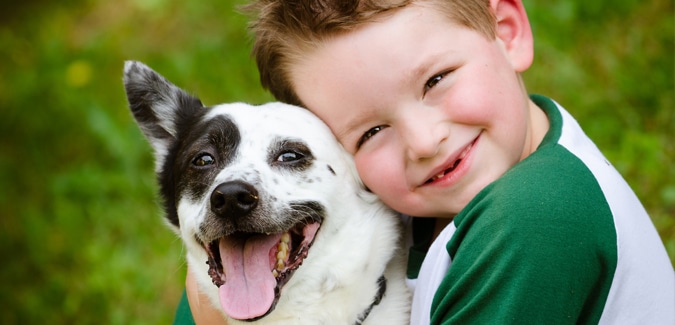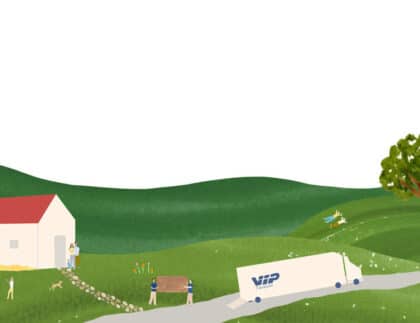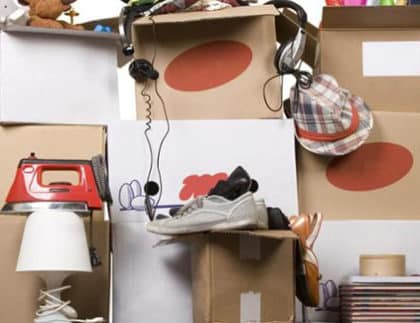
Preparing for the move:
- Take your pet to the veterinarian for a check-up the day before the move. Make sure all vaccinations are current, especially the rabies vaccination. Ask your veterinarian for a copy of your pet’s medical history. If your pet requires medication, make sure to have an ample supply handy. Also, ask your veterinarian to recommend a reliable veterinarian in the city you are moving to.
- Contact the State Veterinarian’s Office or State Department of Agriculture to request the pet laws and regulations of your destination state. Some states require you to obtain a permit for exotic pet ownership. http://www.usda.gov
- Keep a collar with some form of identification on your pets at all times. The ID tag should include the pet’s name, your name, a contact number and the destination address.
- Invest in a high-quality, sturdy pet carrier. It should be large enough for your pet to stand up, turn around, and lie down. Gradually accustom your pet to spending time in it. Don’t leave your pet in the carrier for more than a few minutes unattended.
Day of the move:
- Place your pet in a safe, quiet place, such as the bathroom with a sign on the door that reads “Pets, Do Not Open”. Make sure to move your pet’s food and water dishes into the room. Be sure that movers are aware this room is off limits.
- As an alternative, consider boarding cats and dogs on the day of the move.
Travel Arrangements:
By Car
Car travel is the most common and least expensive means of pet transportation. If your pet is not used to traveling by car, take a few short rides prior to your move to help accustom them to the motion of the car. If your pet is prone to motion sickness consult your veterinarian about medication.
Do not feed your pet or give them water for a few hours prior to leaving. Feed only once a day after you are on the road. Stop every two hours to give your pet fresh air and exercise. Maintain a comfortable temperature inside the car for your pet, and don’t ever leave your pet alone in the car on a hot day.
By Air
Contact airline carriers one month in advance to make reservations. Choose a non-stop flight to avoid extra handling and air-pressure changes. Some airlines allow pets to travel inside the cabin if the pet is odorless and kept in a USDA and IATA approved carrier.
Pets that are too large to travel inside the cabin or are not accompanied by their owner must travel via air freight. Most airlines accept dogs, cats, birds, and fish in air freight. You may need to bring your pet to freight loading two or more hours prior to departure.
Pets must be picked up from the airport within a reasonable amount of time after arrival, usually within 24-hours. If not, they could be returned to the point of origin or placed in a kennel at the owner’s expense.
Be aware that airlines may refuse to transport a pet for any of the following reasons:
- The pet cannot be shipped within a 24-hour period.
- The ground temperature is below 45 degrees F or above 85 degrees F at either origin or destination.
- You do not have a USDA and IATA approved container.
- You do not have proper identification or required certificates.
- The pet has been sedated; unless the name of the drug, dosage, and how it was administered is clearly labeled on the carrier.
Settling In
Prepare your new home. Choose a small room in your new home where your pet can get used to it’s new surroundings. Include their furniture, food, water bowls and any toys they may have. Don’t let pets outdoors without a leash until they have been adapted to their new surroundings – several days to a week for cats: dogs adapt more quickly. If your pets misbehave, consider ways to reduce their stress. It takes animals time to acclimate to new environments. If your pet’s have an accident, clean it up immediately. Most animals tend to repeat behaviors in the same areas, so remove odors as quickly as possible.











